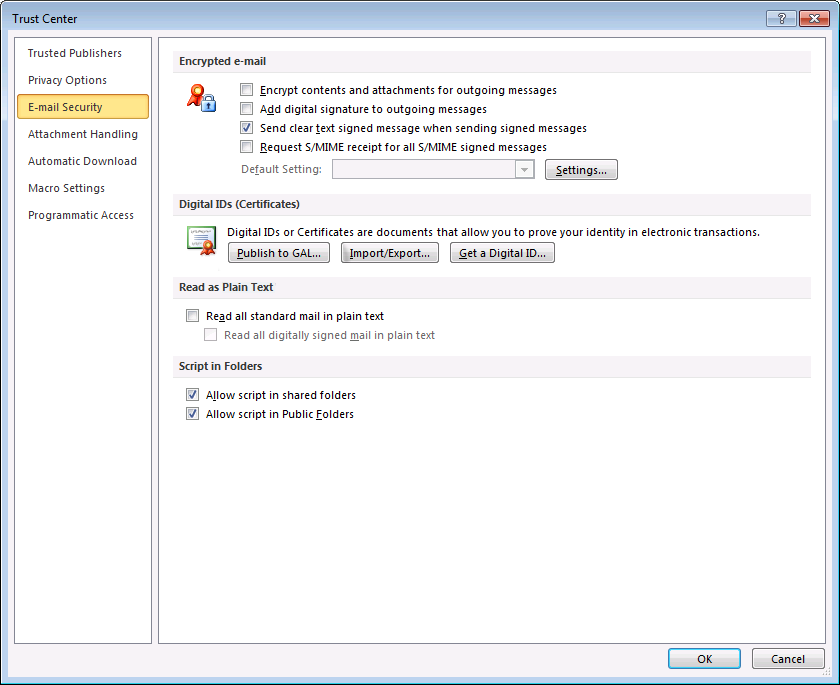This article refers to the Barracuda Message Archiver firmware version 5.2 or higher, and Barracuda Archive Search for Outlook version 5.2 or higher. Barracuda Archive Search for Outlook supports Outlook versions 2013, 2016, and 2019. Note that Outlook for Mac versions are not supported.
Verify Barracuda Archive Search for Outlook version (available for download on the USERS > Client Downloads page) is the same major revision as the Barracuda Message Archiver firmware.
By default, in Microsoft Outlook 2010 a security setting does not allow script execution or custom forms in shared mailboxes or public folders. For this reason, if the Microsoft Exchange Administrator performs message stubbing on shared mailboxes or public folders delegated to all users or specific user groups, these stubbed messages cannot be retrieved in Barracuda Archive Search for Outlook. To allow users to retrieve these stubbed messages in addition to their INBOX messages, each user can set Allow Script in shared folders, or the Microsoft Exchange Administrator can enable scripts in folders organization-wide using the Microsoft Office policy template (ADM) files.
Enable Scripting Organization-Wide (Recommended)
To enable scripts across your entire organization,see the Microsoft article Office 2010 Administrative Template files (ADM, ADMX/ADML) and Office Customization Tool download, verify your operating system in the section System requirements, and following the steps described in the section Instructions.
Once you download and set up the ADM template files, open the ADM file outlk14.adm.
In the ADM file, set VALUEON NUMERIC to ' 1' and VALUEOFF NUMERIC to ' 0' for the following values:
- VALUENAME SharedFolderScript
- VALUENAME PublicFolderScript
For example:
POLICY !L_DisableOutlookobjectmodelscripts
KEYNAME Software\Policies\Microsoft\Office\14.0\Outlook\Security
VALUENAME SharedFolderScript
VALUEON NUMERIC 1
VALUEOFF NUMERIC 0
EXPLAIN !L_DisableOutlookobjectmodelscriptsExplain
END POLICY
POLICY !L_DisableOutlookobjectmodelscriptsforpublicfolders
KEYNAME Software\Policies\Microsoft\Office\14.0\Outlook\Security
VALUENAME PublicFolderScript
VALUEON NUMERIC 1
VALUEOFF NUMERIC 0
EXPLAIN !L_DisableOutlookobjectmodelscriptsforpublicfoldersExplain
END POLICY
END CATEGORY
Enable Scripts on User Systems
If you do not wish to use ADM templates to allow scripting across the entire organization, you can direct each user to enable scripts for shared and public folders. Use the following steps to enable scripts in shared and public folders in Outlook 2010:
- Log in to Microsoft Outlook 2010.
- On the File menu, click Options.
- In the Navigation Pane, click Trust Center, and then click Trust Center Settings.
- In the Navigation Pane, click E-mail Security, and in the Script in Folders section, select Allow script in shared folders and Allow script in Public Folders:

- Click OK to save your settings.
